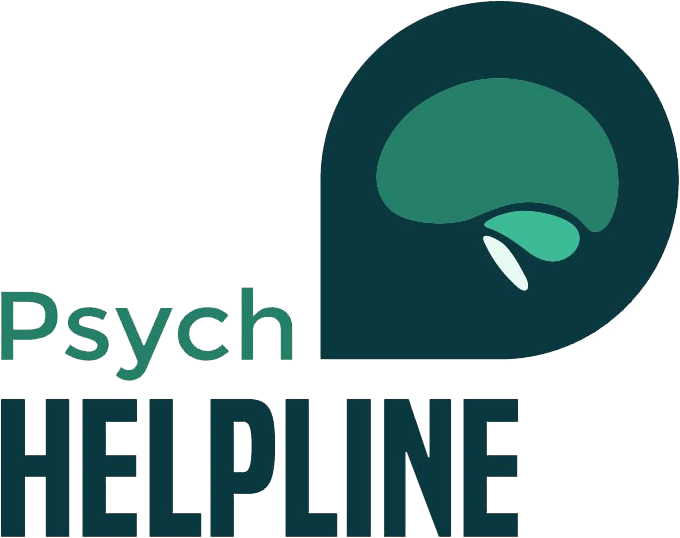Table of Contents
As a parent or guardian, there’s an entire list of things one ought to keep tabs on. For a young child’s well-being, any parent would try their best to monitor each of their activities. Most children are toilet trained from the get-go and soon adopt it as a habit. This is why bed-wetting can be slightly disappointing for those parents that have already made the right moves.
A child is 70% more likely to follow the pattern if a parent has struggled with bedtime incontinence in the past
Bed-wetting (also referred to as) nighttime incontinence and nocturnal enuresis is the act of involuntary urination during the night. Most kids tend to wet their beds during the night as they lose bladder control. The lack of bladder control can be induced by a variety of reasons based on one’s lifestyle, physiology, psyche, etc. So, is bed wetting at a young age truly normal or something you should be worried about? Here’s more on the matter;
Bed Wetting: Should You Be Alarmed?
Hold your horses before you completely go off the rails. There’s nothing to worry about if your child is under the age of 7. Around this time, children are still in the process of adapting to their circumstances and trying to get a hold of bladder control. Thus, nighttime incontinence won’t be that big of a deal under the age of 7. But, if your child is older than that, then a pattern of this sort might be alarming. It can indicate an underline problem so parents should consider bedtime incontinence as a symptom of some other issue. If the matter doesn’t resolve on its own in a few weeks, you might have to take a few steps to relieve this concern.
Bed-Wetting In Children: 7 Common Reasons Behind This Problem
Urinary Tract Infection
A UTI can be a common occurrence among adults that are sexually active yet fail at taking precautionary measures. Children on the other also struggle with it every now and then, perhaps on a milder level. A urinary tract infection usually occurs when bacteria get into the kidney or the bladder. As the argument stands, poor nighttime bladder control can actually result from a UTI.
As a matter of fact, some UTIs can cause a child to lose bladder control even while they are awake. There are many symptoms that can indicate the presence of UTI in a child. Some kids tend to have a mild fever, experience mild pain while urinating and struggle with spots. Another noticeable sign would be urine with a light pink or red tint to it.
Extreme Stress
A major turn of events can be hard to adjust to. Children take time to assimilate changes and new circumstances. For instance, being exposed to a new environment or people can cause a lot of stress. It’s hard to make new friends after shifting localities or switching schools. A young victim of abuse or violence can also be extremely on edge even during the night.
Furthermore, perhaps the death of a close relative or a change in family dynamics can also trigger a child. Stress or anxiety caused by any of the circumstances mentioned above can result in bed-wetting. Children who struggle with ADHD are more than likely of following this pattern during earlier years of development.
Constipation
Every now and then our diet takes a toll on our bowel movement but not many are familiar with its negative impact on our bladder. The same muscles are responsible for bowel and bladder movements. Chronic constipation can damage these muscles which often results in poor bladder control.
Developmental Changes
It’s an already established fact that as your child grows, his/her organs develop accordingly. Based on this argument, one can agree that the bladder of a teenager would be much more developed than that of a child. In the earlier stages of development, a child’s bladder can be way smaller. It can also lead to poor bladder control during the night which is perfectly normal for the majority of kids. It takes time to take full control over nighttime bladder control so hold your horses before you assume the worst.
Poor Water Loss & ADH
It’s entirely possible that your child’s poor bladder control is rooted in hormonal imbalance. Our body, like many other hormones, produces an antidiuretic hormone (ADH). As the name indicates, this particular hormone is responsible for water loss in our bodies. While the kidneys carry out diuresis, ADH ensures that the bloodstream has a proper sodium level. Thus a child’s inability to produce enough antidiuretic hormone can affect his/her bladder control during nighttime, which in some cases results in bed wetting.
Sleep Cycle
A poor sleep cycle or any transgressions while sleeping can result in bed-wetting too. For instance; the quality of sleep can be affected by any environmental sounds and result in bedtime incontinence. Some common culprits include; any domestic chatter, sounds of traffic, television, the noise created by a pet animal, etc.
Diabetes
Although there are many indicators of diabetes even among young children, bed wetting can be the easiest to spot. Both children as well as adults struggling with diabetes produce more amount of urine and are unable to process glucose or sugar in any form. More amounts of urine in your bladder can result in poor bladder control in the case of children. Irregular hunger pangs can be a huge indicator that diabetes could be causing bed wetting. Just to be sure, one ought to get a test done before making any suppositions.
Complications Related To Bed-wetting
Regular bed-wetting can cause rashes around the genital area due to irregular amounts of moisture. This can also cause infection in some cases unless treated with proper medication. In addition to this, as expected bed-wetting can cause an unpleasant odor which can be awful if your child shares his/her bed with a sibling.
No matter how young a child is, he/she is more than likely to experience shame or embarrassment when faced with this phenomenon. This is something that’s usually out of their control. In addition, if anyone close to them finds out about this, the essence of shame increases even further. Most children get bullied based on this habit by the ones close to them.
A sibling or a cousin could be responsible for taunting and further embarrassing them. Some parents or guardians also approach this issue with a stern hand instead of handling the matter more gently.
This can all end catastrophically by leaving a negative impact on the child’s self-esteem. The child in question might even start blaming himself and start believing that there’s something especially wrong with him. It is important to remember that children with low self-esteem grow up to be adults with low self-esteem. Consequently, they live imperfect life due to their low sense of self.
If a kid believes that there’s something abnormal about his antics he is less than likely to socialize like someone his age. The shame of being exposed in front of classmates and others may lead them into creating distance. A child of this sort might try his best to avoid contact with other kids in the fear of unleashing his/her secret and being judged for it. For instance; skipping camping trips with the rest of the class, avoiding sharing a bed with a sibling/cousin, or not staying the night at a friend’s house.
Regular Bed-Wetting: 6 Ways You Can Avoid This Problem
- If anxiety or stress is the culprit behind this problem then you ought to nip the root in the bud. Sit down and have a heart-to-heart conversation with your child. Perhaps the stress of exams or the fear of bullies could be troubling your kid. It’s also entirely possible that your child is being abused behind your back but finds it hard to talk to you about it. For instance; if your child is bothered by the attention you’re giving to a younger sibling then communicating on this topic can calm down your child. Perhaps they’ll even stop wetting their bed when their anxiety associated with this matter is relieved. At that young age, children find it hard to explain how they’re truly feeling. Thus it is your job to investigate the problem properly or as gently as you can without scaring your kid even further. Once you land on an answer you can tackle the problem on your own. Taking a gap year won’t hurt until your child is truly prepared to handle matters without extreme stress.
- If the matter causing stress or anxiety seems more extreme then guardians should most definitely seek the help of a healthcare professional. Look into the best child psychologist operating in your area. If therapy is required to tackle the matter at hand, then this should be your top priority. Bed-wetting could be one of the many problems caused by undealt trauma or stress. So make sure you’re helping your child along this journey.
- Try to monitor your child’s fluid intake around bedtime. You might want to stop them from over-drinking any fluids right before bed but don’t admonish them when they’re experiencing thirst. Additionally, if your child consumes caffeinated drinks even around that age, you might want to put a stop to that. Those kinds of fluids can actually act as diuretics and result in more urination.
- Chronic constipation can be tackled by maintaining a healthy diet. Introduce fiber in your child’s diet whether it’s manufactured water soluble fiber or fiber gained through fruits, cereals, or any other natural items. If the increase in urination is resulting from an irritated bladder then anticholinergic drugs can be of great help.
- You can relieve this problem if it’s the consequence of a UTI by using antibiotics prescribed by a physician. Avoid using drugs prescribed to you if you’ve struggled with a UTI in the past as those were prescribed while taking an adult body into consideration. Get in touch with a doctor as soon as possible if your child reports any pain while urination.
- If it has turned into a long-term issue then it would be ideal to normalize your child’s views on it. Let them know how to set up their bed with a plastic sheet underneath. Let your child carry out any bedtime rituals to avoid leakage. This will help them adapt to this routine and enforce the rhetoric that there’s nothing shameful about bedwetting. Consequently, their self-esteem won’t suffer.
Final Words
Now’s the time to put all these tips into practicality. Start by taking a gentler approach. Instead of embarrassing your child even further, or admonishing them, lend a few words of support to them. Make sure they know how to change into cleaner clothes after they wet their bed so they don’t have to feel ashamed while asking you after each turn. Let this matter remain private and just between you both if your child asks for some privacy.
You might want to avoid any medication programs or services that claim they can ‘rid’ your child of this problem. These are usually a hoax and money-making schemes that cause more distress than relief. Last but not least establish a no teasing rule around the house so none of the children struggle with low self-esteem. Let us know which one of these tips worked best for you!







